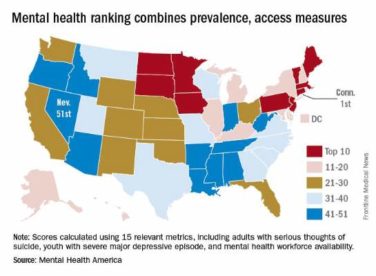BOSTON (FRONTLINE MEDICAL NEWS) – Two related studies of brain structure and the mechanism of the analog of glucagon-like peptide (GLP) hormone liraglutide indicate that the drug works to decrease reward-related activation of brain sites linked to desire for unhealthy foods in patients with type 2 diabetes.
“Our finding suggests that liraglutide may make people more attentive to what they are eating, particularly high-calories or high-fat foods,” said study co-investigator Olivia Farr, PhD, of Beth Israel Deaconess Hospital and Harvard Medical School, Boston. She discussed the findings in this video interview.
Liraglutide, which has been approved for weight management for obese patients and those with type 2 diabetes, is known to promote weight loss, but the mechanism by which this occurs has not been fully understood. The investigators undertook two studies, one to examine human brains to identify GLP-1 receptors and the other to examine the impact liraglutide administration may have on neural responses to food cues in patients with type 2 diabetes.
Immunohistochemical examination of 22 human brain samples identified GLP-1 receptors in the hypothalamus, medulla oblongata, and parietal cortex. GLP-1 receptors have previously only been identified in animals. The findings support the role of the receptors in weight loss in patients on liraglutide.
The researchers then performed a second randomized, placebo-controlled, double-blind, cross-over study involving 18 adult patients with type 2 diabetes. The subjects received, in random order, injections of placebo or liraglutide. Liraglutide was titrated to 0.6 mg at visit 1, 1.2 mg at visit 2, and 1.8 mg at visit 3, which were a week apart, with the highest dose maintained in the 3 days between visits 3 and 4. The total period was 17 days. Visit 4 was an overnight stay followed by functional magnetic resonance imaging (fMRI). Then, after a 3-week washout period, the participants received the other treatment on the same schedule, with another fMRI scan.
During the fMRI, participants viewed images of different foods that had been determined in pre-trial testing to be generally perceived as desirable (typically cakes, pastries, fried food, and fast food) and undesirable (typically leafy greens, fruits, vegetables, and other low-calorie food). In addition, non-food images were shown to verify that the brain activation was driven by the food images. The regions of the brain that became active during inspection of the images were determined.
Liraglutide decreased activation of the parietal cortex in response to the highly desirable food images. Additionally, activation in the insula and putamen was reduced; these regions are involved in the brain’s reward system. Increased perception of hunger and appetite by the participants when they viewed images of desirable foods correlated with increased activation of GLP-1 receptors in the parietal and visual cortices during liraglutide treatment. In participants experiencing nausea, decreased brain activation in the cingulate cortex was apparent. Hypothalamus-related activity was not evident.
“This decreased activation means that individuals on liraglutide find highly desirable foods less attention-grabbing and less rewarding than they typically would without liraglutide,” said Dr. Farr.
The researchers suggested that liraglutide could be suited for weight loss in those who opt for high-fat food as a means of pleasure. Further, the data point to a central mechanism contributing to or underlying effects of liraglutide on metabolism/weight loss.
The Harvard researchers are seeking to confirm the findings in a larger study using the 3-mg dose of liraglutide that has been approved for obesity. In addition, they will explore whether the brain response to liraglutide is a general phenomenon or whether individuals differ.
Dr. Farr had no disclosures.





